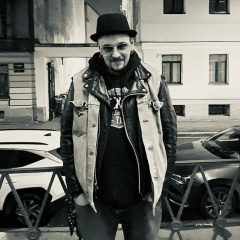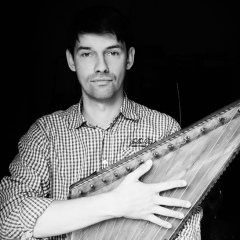Отгремели залпы салюта, имитирующего тот самый, гремевший 27 января 1944 года над Ленинградом. Изнемождённым, исковерканным, обесточенным и голодным Ленинградом. Эти залпы отзываются в моем сердце как-то по особому, родовым воем что ли.
Представить на минуточку то время и испытать ужас, пронизывающий и парализующий. Город был взят в кольцо блокады, когда мама моей бабушки ждала малыша. Всё внутри сжимается в комок, когда думаю о переживаниях, накрывающих мою прабабушку и прадедушку, ожидающих дитя в городе без электричества, еды, тепла, под бомбежками. Ночью 8 марта будущий отец вёз на саночках беременную со схватками по морозу через Тучков мост в ближайший роддом, колотил в запертую дверь, волновался. Без света, в полевых условиях, наперекор всему, появилась маленькая Наташа. Младенцев в роддоме держали отдельно от матерей, согревали бутылями с кипятком. Одна бутылка взорвалась однажды ночью, о чем до сих пор напоминает шрам. Каждое утро вывешивали список тех, кто не дожил до утра.
Потом были первые месяцы выживания в осажденном городе, в один из худших его периодов. И был «разрыв» блокадного кольца. Детей и женщин вывозили по льду Ладоги. Почему-то мама и дочка не попали в один грузовик, их везли в разных, как и многие другие. Некоторые грузовики уходили под лёд: на глазах матерей гибли их дети, а они были бессильны их спасти. КАМАЗ, где ехала моя почти двухлетняя бабушка заглох на льду, водитель обмотал тряпками руки и поджег их, чтобы отогреть что-то в машине, чтобы завелась. Каждый совершал свои подвиги. Из таких подвигов на крови и отчаянии, на грани, выткана эта победа.
Представить на минуточку то время и испытать ужас, пронизывающий и парализующий. Город был взят в кольцо блокады, когда мама моей бабушки ждала малыша. Всё внутри сжимается в комок, когда думаю о переживаниях, накрывающих мою прабабушку и прадедушку, ожидающих дитя в городе без электричества, еды, тепла, под бомбежками. Ночью 8 марта будущий отец вёз на саночках беременную со схватками по морозу через Тучков мост в ближайший роддом, колотил в запертую дверь, волновался. Без света, в полевых условиях, наперекор всему, появилась маленькая Наташа. Младенцев в роддоме держали отдельно от матерей, согревали бутылями с кипятком. Одна бутылка взорвалась однажды ночью, о чем до сих пор напоминает шрам. Каждое утро вывешивали список тех, кто не дожил до утра.
Потом были первые месяцы выживания в осажденном городе, в один из худших его периодов. И был «разрыв» блокадного кольца. Детей и женщин вывозили по льду Ладоги. Почему-то мама и дочка не попали в один грузовик, их везли в разных, как и многие другие. Некоторые грузовики уходили под лёд: на глазах матерей гибли их дети, а они были бессильны их спасти. КАМАЗ, где ехала моя почти двухлетняя бабушка заглох на льду, водитель обмотал тряпками руки и поджег их, чтобы отогреть что-то в машине, чтобы завелась. Каждый совершал свои подвиги. Из таких подвигов на крови и отчаянии, на грани, выткана эта победа.
Volleys of fireworks, imitating the one that thundered on January 27, 1944 over Leningrad, died down. Exhausted, warped, de-energized and hungry Leningrad. These volleys echo in my heart somehow in a special, generic howl or something.
Imagine that time for a moment and experience horror, piercing and paralyzing. The city was taken into a blockade ring when my grandmother's mother was expecting a baby. Everything inside shrinks into a lump when I think about the experiences that cover my great-grandmother and great-grandfather, waiting for a child in the city without electricity, food, heat, under the bombing. On the night of March 8, the future father was driving a pregnant woman with contractions in the frost across the Tuchkov Bridge to the nearest maternity hospital on a sled, banging on the locked door, worried. Without light, in the field, in spite of everything, little Natasha appeared. The babies in the maternity hospital were kept separate from their mothers and warmed with boiling water bottles. One bottle exploded one night, which is still a scar. Every morning, a list of those who did not live until the morning was posted.
Then there were the first months of survival in the besieged city, in one of its worst periods. And there was a "break" of the blockade ring. Children and women were taken out on the ice of Ladoga. For some reason, mom and daughter did not get into the same truck, they were transported in different ones, like many others. Some trucks went under the ice: in front of their mothers their children were dying, and they were powerless to save them. KAMAZ, where my almost two-year-old grandmother was driving, stalled on the ice, the driver wrapped rags around his hands and set them on fire in order to warm up something in the car, so that it could start. Everyone performed their own feats. This victory is woven from such feats on blood and despair, on the brink.
Imagine that time for a moment and experience horror, piercing and paralyzing. The city was taken into a blockade ring when my grandmother's mother was expecting a baby. Everything inside shrinks into a lump when I think about the experiences that cover my great-grandmother and great-grandfather, waiting for a child in the city without electricity, food, heat, under the bombing. On the night of March 8, the future father was driving a pregnant woman with contractions in the frost across the Tuchkov Bridge to the nearest maternity hospital on a sled, banging on the locked door, worried. Without light, in the field, in spite of everything, little Natasha appeared. The babies in the maternity hospital were kept separate from their mothers and warmed with boiling water bottles. One bottle exploded one night, which is still a scar. Every morning, a list of those who did not live until the morning was posted.
Then there were the first months of survival in the besieged city, in one of its worst periods. And there was a "break" of the blockade ring. Children and women were taken out on the ice of Ladoga. For some reason, mom and daughter did not get into the same truck, they were transported in different ones, like many others. Some trucks went under the ice: in front of their mothers their children were dying, and they were powerless to save them. KAMAZ, where my almost two-year-old grandmother was driving, stalled on the ice, the driver wrapped rags around his hands and set them on fire in order to warm up something in the car, so that it could start. Everyone performed their own feats. This victory is woven from such feats on blood and despair, on the brink.
У записи 17 лайков,
0 репостов,
387 просмотров.
0 репостов,
387 просмотров.
Эту запись оставил(а) на своей стене Марина Лорензо






































